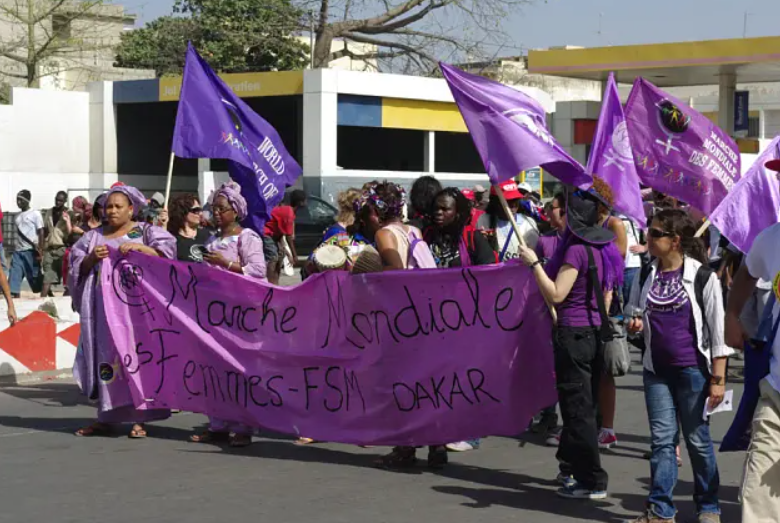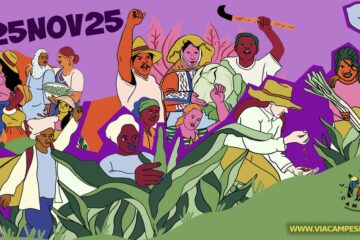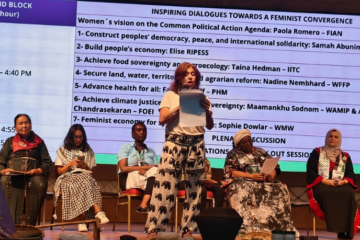Africa is a region that sparks particular interest due to its complex character and evolution. While it is a rich continent in cultural diversity and natural resources, it is faced today with many challenges. There are elements that allow us to formulate a situational analysis. The first analysis addresses economic growth, which has seen continuous progress in recent years—yet not always inclusive progress. Today, this creates many significant inequalities across different African countries that struggle to tackle other challenges in terms of sustainable development. Moreover, we have insecurity and armed conflicts that impact our continent.
In several countries, we have seen part of what is happening in terms of insecurity and conflicts related to violent extremism. It’s the case in Mali, with intercommunal violence and illegal trafficking. These disturbances have dramatic humanitarian consequences that stop the region’s economic development. We have also witnessed the impact of climate change. Especially in Western Africa, we are particularly vulnerable to the effects of climate change on different levels, including coastal erosion and floods. We also face rising water levels along the Senegal River, which affects many populations, especially women and children.
Not only do we face these natural phenomena, we also face other problems related to food security and population displacements, which lead to demographic deficits. The African region has one of the world’s youngest populations, which is as an opportunity as it is a challenge. It is crucial to invest in education and qualification for young people and children to allow them to start their professional lives.
All conflicts we are currently facing in Africa are particularly connected to the issue of democracy and good governance. In Western Africa, we have conflicts in many countries that have spoken up due to democratic transitions that did not work. To consolidate democracy and improve governance, which are the great challenges facing the stability of development, we can see some issues that require work.
The issue of violence against women, in the African context, is connected to sexual violence, child marriage, forced marriage. There is also the issue of access to education. There is an issue regarding encouraging young women to invest in scientific disciplines, even though some states have developed policies that focus on maintaining girls’ access to school and education, and also making sure they remain in school. These are policies that these states have introduced to try to correct part of the gap between men and women.
The other issue is the access to health care. We know that, in Africa, health has always been a pressing issue. As of now, the access to care is very limited, especially for women and children. We can also identify aggravating factors, including socio-cultural norms that we know and experience every day in our societies, or poverty, which is still present on the African continent. Nevertheless, we have had some progress in certain countries, as laws have been passed to improve living conditions or women’s rights.
The parity law vote in Senegal is an example of that. The law bans, for example, female genital mutilation, and also everything that is violence against women. Today, we must empower the laws that we have passed.
Senegal is arguably the top country when it comes to signing and ratifying (laws), but the problem is enforcing these laws.
We also have to struggle to effectively have these laws enforced, and also invest more in youth education and promote gender equality in education. We also need to promote and raise awareness among the public opinion about the challenges facing gender equality to improve mentalities.
Feminists Against Imperialism
Feminism and anti-imperialism are two social movements that have often intertwined and strengthened each other, especially in Africa.
African women have always been at the forefront of international—and even national—struggles, as is the case in Senegal, and they continue to play a crucial role in contemporary forms of resistance against neocolonial forms of exploitation.
To address these historical aspects, we will discuss the anti-colonial struggle, because we know that many African women have actively taken part in national liberation movements. They have fought side by side with men, organized local resistance efforts, and denounced the violence endured by colonized populations. I will mention the example of these brave women who have been at the forefront of all these movements that we have today on the African level and in our countries. They quickly understood that they were being subjected to double oppression, connected not only to gender but also to colonization.
These women have struggled and kept the flame of the feminist struggle in Africa alive. African women continue to struggle against the consequences of neocolonialism and neoliberalism, which reinforce gender inequalities and patriarchal systems with gender-based violence. These are maladies that persist and are often connected to systems of domination inherited from colonization. The struggle for women’s access to land is an issue connected not only to violence against women, but also to food sovereignty.
We must start to think about the decolonial today. It is a truly intellectual ascertainment, which aims to challenge everything that has been inherited from colonization and rethink power relations between North and South, West and the rest of the world. African feminisms have developed feminist analyses that have allowed them to challenge today everything that is related to Western representation. There are many women’s networks that are being created to help empower African struggles, but also a strong international mobilization that has been created at the level of feminist movements and that enriches the discussions about social justice and intersectionality.
Senegal really has a very rich history in terms of women’s organization, and more so in terms of feminist struggle. These networks have often been centered around economic, cultural, and religious activities. After the independence, Senegalese feminist movements, with the help of African intellectuals that attended colonial schools, they have voluntarily focused on the access to education, health care, and employment.
Concurrently with this feminist movement, we also have the Islamic feminist movement, which allows women today not only to review their religion and its religious texts, but also formulate their own interpretation of religious texts men have produced, with a different reading of them. All this has allowed us to effectively wage a struggle against everything regarding child marriage, economic inequality, and the impacts of climate change on women, and wage a struggle against neoliberalism and structural adjustments that have really impacted women’s lives and progress.

Ndeye Fatou Sarr is a member of the World March of Women in Senegal.




